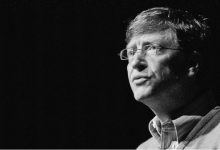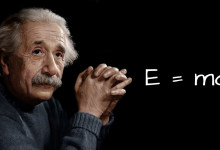Albert Einstein – Personalities | History

There is no more famous scientist: Albert Einstein, the genius of science par excellence. He revolutionized the worldview within just one year, his “miracle year” 1905. He was determined, only had his science in mind – at the expense of his friends, wives, and children. But that was only part of his personality. Something else was hidden behind this Albert Einstein. What was this hidden force that drove and inspired him?
Table of Content
The lonely genius of science
Charlie Chaplin saw the crowd cheering for Einstein when he greeted his guest at the premiere of the film “City Lights” in Los Angeles.
On January 30, 1931, journalists heard what he whispered to Einstein: “They cheer for me because everyone understands me – but for you because nobody understands you.” Even for Einstein himself, it was a mystery. He once confessed that he too asked himself: “How does it come that nobody understands me and yet everyone likes me?”
No doubt: at the height of his career, those around him admired him but did not understand him. Einstein was a media superstar, a cult figure, from the 1930s. Wherever he appeared, wherever he spoke, people were enthusiastic.
Only a few colleagues, even physicists, and mathematicians were able to keep up with his ideas. Einstein thus shared the fate of many geniuses – loneliness: “I lived in a loneliness that is painful in my youth, but delicious in the years of maturity”, he confesses in his autobiographical book “From my late years”.
Almost mockingly, he called himself a “single horse.” Einstein was looking for solitude and silence so that he could indulge in his thoughts and daydreams. To be on the safe side, he always took a notebook with him so that nothing of the ideas would get lost.
He liked being around people. He cultivated his friendships and corresponded a lot. In conversation, he was looking for funny punch lines. He knew its effect on people.
On December 10, 1930, he wrote in his travel diary: “The reporters asked selected stupid questions, which I answered with cheap jokes that were received with enthusiasm.” How did it all start? What was Einstein’s life like before he became so famous?
Childhood and school
At half-past eleven o’clock – on March 14, 1879 – the first cry of a baby was heard in Bahnhofstrasse B 135 in Ulm. The little worm was the first son of Hermann and Pauline Einstein. He was to become the genius of science: Albert Einstein.
His family was of Jewish origin and had lived in Swabia for generations. In Einstein’s house, people didn’t pray, their parents didn’t go to the synagogue, and they didn’t pay attention to the dietary rules.
Einstein’s mother was educated and played the piano – her son had the musical talent from her. The father was a merchant and partner in his cousin’s bed-feather shop. The parents brought up Einstein and his younger sister Maja freely and anything but authoritarian.
The parents gave the children a sense of security – and supported the children’s talents as soon as they showed themselves. They wanted to raise their children to be independent, free and tolerant people.
And little Albert was independent of an early age: when playing on the street, he was often to the side and indulged in his dreams. When he was four, his father gave him a compass – and was fascinated by the needle as it always pointed in the same direction by magic.
“There must be something behind things that were deeply hidden,” he later wrote. When he was twelve he read Alexander von Humboldt’s “Kosmos” with great enthusiasm. His sense of the mysterious, beautiful and wonderful, a “holy curiosity” was the mainspring of his whole later life.
Einstein was not a bad student – contrary to what many suspects. The family lived in Munich since 1880. In elementary school, the “Albertle” was the best in its class. From 1888 to 1894 he attended the Luitpold High School. There he was an outsider but had good to very good grades: “very good” in the natural sciences and in Latin, “good” in Greek.
But then Einstein had his first experience of injustice and resentment at school: Because of the anti-Semitism that was already rampant at the time, the parents emigrated to Milan. Because young Albert Einstein was so close to high school, they wanted with a heavy heart to leave him alone in Munich until he finished high school.
He himself later called Munich an “anti-Semitic reactionary wasp’s nest,” a remark that is not surprising when you consider that his class teacher at the time insulted him shortly before Christmas: He would never become anything and he should leave school. According to the “pedagogue”, his mere presence spoils his respect in the class.
The 15-year-old Einstein left Munich head over heels and took the train to Milan. He then graduated from high school in September 1896 at the Aarau Cantonal School in Switzerland. His high school grades again: “very good” and “good”. In his French Abitur essay, he confidently wrote that he wanted to become a physics professor.
Student and “Expert III. Class”
In October 1896 Einstein was enrolled in matriculation VI, “Subject teacher in mathematics and science” at the Swiss Federal Polytechnic School in Zurich. Here he was actually supposed to become a physics professor 17 years later – at the now renamed “Federal Technical University”.
Einstein was hardworking and determined and graduated on July 28, 1900, at the age of 21. Then he looked for a job – and despite his talent and grades, he couldn’t find a job. He was so desperate that his father wrote to the famous chemist Wilhelm Ostwald in Leipzig without his knowledge: “My son now feels deeply unhappy in his current joblessness and every day the idea that he is derailing his career takes hold be…”
It was precisely this Wilhelm Ostwald, nine years later, who would recommend the unknown student for the Nobel Prize in Physics.
It was not until two years later, on June 23, 1902, that he finally became “Expert III. Class” at the “Swiss Patent Office for Intellectual Property” in Bern. Now he was earning his first money and had time for his ideas.
And indeed: The years up to his “miracle year”, the “annus mirabilis” in 1905, laid the foundation for his theories – and changed physics and the entire natural sciences of his time. After eight hours of service, Einstein started his research.
These projects showed his determination, joy in thought experiments, and journeys into the realm of the imagination. He himself called intuition the source of his ideas. Einstein’s teacher was fantasy. Behind each of his fundamental contributions to modern physics was a concrete dream. These images are also the key to understanding the basic ideas of his theories, special and general relativity.
In 1905 his doctoral thesis was accepted in Zurich and from January 15, 1906, he was “Dr. Albert Einstein.” Then everything happened very quickly: He was promoted to “Expert II. Class”. Two years later he became a private lecturer and finally, on October 15, 1909, professor of physics in Zurich.
After a short time as a professor in Prague, Max Planck brought him to Berlin on April 1, 1914. Einstein thus became a member of the Prussian Academy of Sciences and was at the preliminary high point of his career.
Einstein private – the daydreamer
Playing the violin, house music, reading books and games of skill: the genius of natural science spent his free time with these – in Berlin and later during his time at Princeton. So he recovered – and thus had time for his daydreams and concentration games.
He was fond of nature, loved sailing, and was anything but a boring couch potato. His passion for sailing boats and long excursions on the water began during his time in Zurich, 1896, at the age of 17. But he didn’t have the money for his own boat yet. He only fulfilled this dream in Berlin, 18 years later.
In November 1922, while on a trip to Japan, he unexpectedly received news of the Nobel Prize in Physics. Einstein was to receive the award for 1921 for his work on the “Photoelectric Effect” from 1905.
Einstein knew how to explain why light is able to generate a current when it falls on a conductive plate. Today this effect is the basis for light barriers and not least for the laser. And that’s in every CD and DVD player.
Wealthy friends gave him a more comfortable boat, his “Tümmler”, for his 50th birthday in 1929. He affectionately called this dinghy cruiser his “thick sailing ship”. It was custom-made from solid mahogany.
For four full summers, Einstein enjoyed country life near his boat in Caputh near Potsdam. He often stayed on the water all day. He wanted to get away from the hustle and bustle and just let his thoughts go. Sailing during his time in Berlin was also a kind of calming down in view of the political upheavals in Germany.
At that time Einstein was at the height of his scientific career in Germany. On June 28, 1929, the German Physical Society awarded his – as Einstein called him – “revered master” Max Planck and himself the Max Planck Medal. Exactly 50 years earlier, the 21-year-old Planck had received his doctorate in Munich.
On this day, however, Einstein had to pass almost a thousand screaming National Socialist students on the way to the Physics Institute. The government and the Reich President had proclaimed this day a “day of mourning”: ten years earlier, the German negotiators had signed the peace treaty in Versailles.
Albert Einstein never forgot that day, as he later bitterly noted. For him, his time in Berlin was up, he knew that. Einstein fled to the USA before the increasing hostility towards Jews.



